Integrating NPs and PAs into Your Hospital Medicine Program

The field of hospital medicine is continuously evolving to meet the demands of rising patient numbers and complexity. As a result, nurse practitioners (NPs) and physician assistants or physician associates (PAs) have been incorporated into 84% of adult hospital-medicine programs and 45% of pediatric hospital-medicine programs.1
Although NPs and PAs have varying health care backgrounds and diverse educational models, their ultimate goal is to deliver high-quality patient-centered care. Therefore, it is vital to integrate NPs and PAs optimally into hospital-medicine programs while taking into account the unique nuances of each profession. This article aims to explore the similarities and differences between NPs and PAs, enabling health care professionals to foster a high-performing interdisciplinary team.
Background
Both the NP and PA professions were created in the post-World War II era to fulfill an urgent need for expanded health care delivery and to use the skills of a newly available workforce.
The first NP program was established in 1965 by Henry Silver and Loretta Ford from the University of Colorado School of Medicine in Boulder, Colo. The program emerged due to a significant increase in childbirth rates, which created a significant gap in health care delivery, especially among children and underserved, rural, patient populations.2 Also, the expansion of Medicare and Medicaid services to include low-income women and children, the elderly, and people with disabilities exacerbated an already critical shortage of primary-care practitioners.3 Development of the nurse-practitioner profession sought to fulfill these critical needs.
Simultaneously, as World War II drew to a close, a considerable number of army medics and corpsmen transitioned back into civilian life.4 In 1961, Dr. Charles Hudson identified the opportunity to leverage this vast experience in his article “Expansion of Medical Professional Services with Nonprofessional Personnel” published in the Journal of the American Medical Association.5 Dr. Eugene Stead Jr. formalized the PA program, culminating in the inaugural class of physician assistants graduating from Duke University in 1967.6
Educational preparation
Current NPs and PAs graduate with a master’s or doctoral degree and undergo rigorous didactic and advanced clinical training. A Bachelor of Science in Nursing (BSN) is a prerequisite for graduate NP education through which applicants gain clinical nursing experience, and many programs require professional experience as a nurse for entry. PA applicants are also required to have a bachelor’s degree. Most programs require clinical experience, which may be achieved in various areas such as scribe, respiratory therapist, pharmacy technician, phlebotomist, etc. On average, NP and PA master’s programs are approximately 24 months in length. Each program is held to accreditation standards that ensure academic integrity and curricular competencies. Successful completion of a national certifying examination and attainment of state licensure is required before entering clinical practice as an NP or PA. Though not required, both NPs and PAs have the option to obtain a doctoral degree.
NP education is a combination of validated competency in didactic and clinical experiences based on the specialty chosen within the NP field. Core education for NP programs includes advanced pharmacology, advanced pathophysiology, and advanced physical assessment. Clinical rotations and additional didactic content occur in tandem and are tailored to the NP specialty program. While several NP accrediting bodies exist, the predominant organizations in hospital medicine are the American Academy of Nurse Practitioners (AANP) and the American Nurses Credentialing Center (ANCC).7,8
PAs are educated in a generalist medical model. Students complete at least one year of didactic education followed by one or more years of clinical education. The didactic curriculum typically includes core sciences, such as anatomy and physiology, in addition to medical sciences and clinical reasoning. The clinical phase consists of seven core rotations and a variable number of elective rotations. Core rotations include behavioral health, emergency medicine, family medicine, internal medicine, pediatrics, surgery, and women’s health. Curriculum content is overseen or guided by the Accreditation Review Commission on Education for the PA (ARC-PA).9
Once certified, NPs and PAs may choose to enter clinical practice or pursue optional postgraduate training programs, including doctoral degrees.10,11 Additional certifications are also available.12 Completion of credentialing and privileging processes, per institutional policies, is required for both professions.
Team
Optimal team culture values the unique backgrounds, characteristics, and skill sets of all team members that comprise a hospital medicine group with a shared goal of providing high-quality, efficient, and evidence-based patient care leading to satisfied patients and satisfied practitioners. Understanding the similarities and differences between NPs and PAs empowers health care professionals to create highly functioning interdisciplinary teams. Hospital medicine practice of NPs, PAs, and their physician colleagues is rooted in many of the same principles: assessment, diagnosis, and treatment; via ordering tests, imaging, lab work, prescribing medications, and other interventions; coupled with patient-centered communication. To build this culture, leadership has an opportunity to support and demonstrate optimized interprofessional practice through intentional messaging and programming for orientation, collaborative team practice, and professional development inclusive of all disciplines.
Orientation
A standardized and supportive orientation that is customizable to the clinical and operational experience and background of the NP and PA is vital to ensure high-quality patient-care delivery regardless of the professional role. Hospital medicine leadership has the responsibility of identifying the needs of the hospital medicine program and developing a process for validated competency that focuses on the necessary clinical and operational skill development with the ability to tailor training to the individual. Consideration may be given to years of experience, clinical competencies, and operational competencies. Considerations may include:
- New graduates’ possible need for a more detailed and prolonged orientation in comparison to an experienced NP or PA
- Appreciation of types of operational experience to ensure competency in admissions, cross-coverage, rounding, discharging patients, and communication between health care teams and with patients and caregivers
- Background in facility foundational knowledge (e.g., bed management, care coordination, surge capacity, transitions of care)
- Individualized focus based on prior hospital medicine experiences that may differ greatly across different programs (e.g., focused orientation in transplant co-management care)
Multiple resources within SHM exist to help programs accomplish this structured, yet customizable, orientation.
Collaborative team practice
The importance of understanding that NPs and PAs often function in very similar roles after the initial customized orientation period cannot be understated. In hospital-medicine practices, NPs and PAs work as high-functioning team members in partnership with their physician colleagues to provide high-quality, patient-centered care.13 An intentional plan for hiring and integration of NPs and PAs into the care-delivery model of the hospital-medicine program should be in place before initiating the hiring process. This will require an understanding of institutional bylaws, rules and regulations, compensation methodologies, and state regulations that should be appreciated for successful NP and PA incorporation.
While there are some states with restricted and supervisory regulations for NPs and PAs, in the hospital setting these rules are often easily accommodated without jeopardizing autonomy or causing unnecessary administrative burdens for physician colleagues. Oftentimes, simple processes can be put in place to address supervision and collaboration or chart-review requirements. These processes can be easily integrated into already existing workflows and electronic health records for maximal time efficiency.
Professional development
In addition to clinical practice, NPs and PAs commit to professional development throughout their careers. Both professions require ongoing continuing education hours for license and certification renewal.7,8,14 Though not required, some NPs and PAs choose to extend their training through a variety of post-graduate training programs, such as fellowships, residencies, doctoral programs, and certificate programs.10,11,12,15
Additionally, many NPs and PAs have passions external to the clinical realm such as medical education, clinical operations, quality improvement, and research. This is demonstrated within SHM in forums such as the NP/PA Special Interest Group, the NP/PA track at SHM Converge, and through NP/PA participation in the Research, Innovation, and Vignette scientific-poster competition.16 SHM also highlights NPs and PAs with diversified interests through the Awards of Excellence program, which includes an award for Clinical Leadership for NPs and PAs and honors members who have made exceptional contributions to hospital medicine in areas such as system improvement, promotion of clinical knowledge, and patient care.16
Through investing in NP and PA professional development, hospital medicine groups have a unique opportunity to cultivate bidirectional mentorship amongst their NP, PA, and physician colleagues to further the mission of excellence for the field of hospital medicine. Effective NP, PA, and physician collaboration yields many positive benefits such as improved patient outcomes, increased efficiency, and improved patient and provider experience.13,17,18
Conclusion
NP and PA integration into hospital medicine practices continues to increase, and optimal integration is vital for excellent patient-care delivery. While the background, educational preparation, and historical underpinnings of NP and PA programs may differ, by focusing on structured and customized orientation coupled with investment in NP and PA professional development, hospital medicine programs will be well prepared for future use of this important workforce. Ultimately, a focus on the team dynamics of hospital medicine physicians, NPs, and PAs working together collaboratively creates a strong foundation to sustain current and future hospital medicine practices.
Disclosure: Ms. McGrath has received a project grant and clinical buy-down from the section of hospital medicine for a project entitled “L.E.A.D from Where You Are: A Framework to Advance the Academic Footprint of Hospitalist Physicians and NP/PAs” effective July 1, 2022. This manuscript counts toward the observed outcomes of the project. Dr. Burden reports funding from the Agency of Healthcare Research and Quality and from the American Medical Association not related to this work.
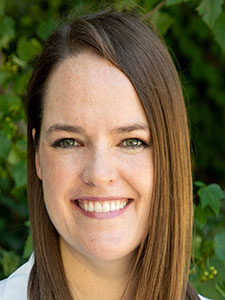
Ms. McGrath
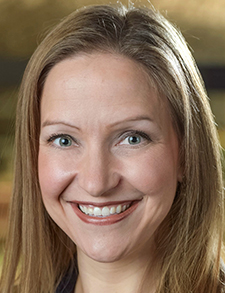
Ms. Cecil
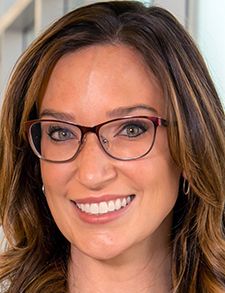
Ms. Bowden
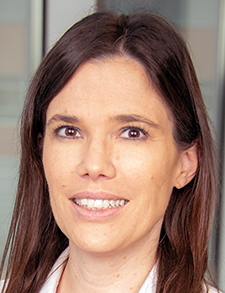
Dr. Burden
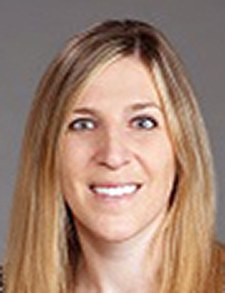
Ms. Lindaman
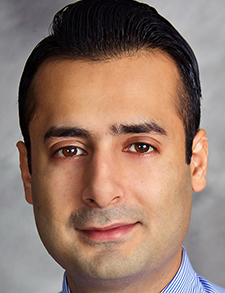
Dr. Mirza
Ms. McGrath is the advanced practice provider manager of the section of hospital medicine, hospital-level advanced practice provider executive council chair, and interprofessional education co-lead at the University of Chicago in Chicago. She is also a faculty member for Butler University’s physician assistant program in Indianapolis. Ms. Cecil is the system director of advanced practice for acute care services at CommonSpirit Health’s 142 inpatient facilities across 21 states. She also co-leads a physician and APP leadership development program, certified through Creighton University in Omaha, Neb. Ms. Bowden is an assistant professor of medicine and associate division head of hospital medicine at the University of Colorado School of Medicine in Aurora, Colo. She is also the medical director of the clinical assessment and rapid evaluation (CARE) clinic at the University of Colorado Anschutz campus in Aurora, Colo. She is the current chair of the SHM NP/PA Special Interest Group. Dr. Burden is the division head of hospital medicine and professor of medicine at the University of Colorado School of Medicine in Aurora, Colo. Ms. Lindaman is a physician assistant at Atrium Health Wake Forest Baptist—Lexington Medical Center in Lexington, N.C., and adjunct faculty at the Wake Forest School of Medicine PA program in Winston-Salem, N.C. Dr. Mirza is division chief for hospital medicine, site medical director of Creighton University Medical Center-Bergan Mercy, faculty lead for education and duty hour compliance, assistant professor and associate program director for the internal medicine program leadership at Creighton University School of Medicine, all in Omaha, Neb.
References
- Society of Hospital Medicine. 2023 State of Hospital Medicine Report. Philadelphia: Society of Hospital Medicine; 2023. https://www.hospitalmedicine.org/practice-management/shms-state-of-hospital-medicine2/. Accessed January 25, 2024.
- Mook B. CU Nursing establishes reputation as a pioneering institution. University of Colorado Anschutz Medical Campus College of Nursing website. https://news.cuanschutz.edu/nursing/1948-1973-cunursing-establishes-reputation-as-a-pioneering-institution#:~:text=Upon%20being%20initially%20turned%20down%20by%20a%20state,four%20months%20of%20didactic%20preparation%20and%20clinical%20practice. Published July 10, 2023. Accessed January 25, 2024.
- Key milestones in Medicare and Medicaid history, selected years: 1965-2003. Health Care Financ Rev. 2005;27(2):1-3.
- Chalupa RL, Marble, WS. A history of US Army PAs. JAAPA. 2017;30(11):39-43.
- Hudson CL. Expansion of medical professional services with nonprofessional personnel. JAMA. 1961;176:839-41.
- Kilgore JR, Lund MB. PA education: Origins, advancements, and challenges ahead. In: Kole L and Konopka-Sauer L, eds. Physician assistants as social innovators in healthcare: PAs do that! Johns Creek (GA): Physician Assistant History Society; 2022:167-192.
- Nurse practitioner (NP) certification. American Academy of Nurse Practitioners website. https://www.aanp.org/student-resources-old/np-certification. Accessed January 25, 2024.
- Our certifications. American Nurses Credentialing Center website. https://www.nursingworld.org/our-certifications/. Accessed January 25, 2024.
- ARC-PA website. https://www.arc-pa.org/. Accessed January 25, 2024.
- Association of Post Graduate APRN Programs website. https://apgap.enpnetwork.com/. Accessed January 25, 2024.
- PA specific doctorate programs. Academy of Doctoral PAs website. https://www.padoc.org/pa-specific-doctorate-programs/. Updated 2024. Accessed January 25, 2024.
- Specialty certificates. National Commission on Certification of Physician Assistants website. https://www.nccpa.net/specialty-certificates/. Updated 2024. Accessed January 25, 2024.
- Shannon EM, Cauley M, et al. Patterns of utilization and evaluation of advanced practice providers on academic hospital medicine teams: a national survey. J Hosp Med. 2022;17(3):186-191.
- Maintain certification. National Commission on Certification of Physician Assistants website. https://www.nccpa.net/maintain-certification/. Updated 2024. Accessed January 25, 2024.
- PA and joint PA/NP postgraduate program listings. The Association of Postgraduate PA Programs website. https://appap.mypanetwork.com/page/1213-pa-and-joint-pa-np-postgraduate-programs-reference-chart-by-specialty. Updated 2024. Accessed January 25, 2024.
- Society of Hospital Medicine website. https://www.hospitalmedicine.org/. Accessed January 25, 2024.
- Hartsell Z, Ficco D, et al. Optimal use of APPs can enhance a health system’s post-COVID-19 financial recovery. Healthcare Financial Management Association website. https://www.hfma.org/cost-effectiveness-of-health/financial-sustainability/optimal-use-of-apps-can-enhance-a-health-system-s-post-covid-19/. Published July 31, 2020. Accessed January 25, 2024.
- Johnson D, Ouenes O, et al. A direct comparison of the clinical practice patterns of advanced practice providers and doctors. Am J Med. 2019;132(11):e778-e785.